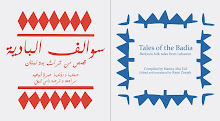
Back from a wonderful trip to one of my favorite cities- Aleppo- in one of my favorite countries: Syria. Many years ago, when I started teaching agriculture, I used to go quite often to Aleppo, which is where
ICARDA, the CGIAR center devoted to dryland farming, is located. This is the 3rd
time I have been to Aleppo this year, but this time it was purely for pleasure, a 4-days family trip. We stayed in the neighborhood of Al-Jdeida, which is an old part of the city (picture below), ideally located, mid way between Al`Aziziah and the old souks. It has been renovated recently by the Germans, so does my (half German and half Syrian) friend L. tell me- and she should know. The hotel we stayed in is called Beit al Wakil. It is an old house with a beautiful courtyard (see photo below) where I had coffee every morning while reading my novel (Steig Larsson- great novelist, RIP) before heading out vers l'aventure.


We got into Aleppo on Thursday, a bit late after 7 hours on the road, of which one and a half hour were spent between Beirut and Jounieh and another hour at the borders. The driving was OK: nothing new, the Syrians drive just as bad as the Lebanese. After checking in, we still had time for a short stroll in the old quarter. The first monument we came across was the Maronite church: very old and stunning, a reminder that there were Maronites in Syria before there were in Lebanon. This would become clearer on the next day, when we visited the small village north of Aleppo where Mar Maroun (St. Maroun) is saidto be buried, in a very modest, unmarked grave (see pic below) . I loved the inside of the church, but what I liked most was the statue of St. Elie, in the courtyard, where a number of youth were socializing. St Elie is slaying something that was not represented, I assume it is the Dragon.



Next morning, after an excellent breakfast of local cheeses, local preserves and local fruits in syrup (all highly recommended), we headed towards the cathedral of
St. Simeon, the hermit who in the 5th century AD spent 37 years on a pillar. There isn't much remaining from the pillar apparently because everybody who has visited since AD 600 has wanted to take a piece as a souvenir. Look at the center of the second picture below. If you enlarge you should be able to see the boulder, which all all that remains from the 15m column. But the ruins are fabulous, and well worth a visit, and the view on the plain below is breathtaking.


On the way to St. Simeon, we visited a couple of other locations, all part of the same ruins "complex": Qatoura (a village where people live between the ruins, or rather inside the ruins), Sitt el Roum and Refadeh. In Sitt el Roum we encountered two young men who had come to give water to their horses from a rainwater collection well, probably a couple of millenia old.

In Refadeh, the ruins are wonderful and the village plan is still intact. A family of farmers and shepherds lives there, in a house they have reclaimed from what appears to be a colonnade.

The area around St. Simeon is beautiful. It is hilly, and although it is a dryland, nearly all the land is under farming: olives, grapes, figs, and wheat and barley. The hard limestone rocks give the beautiful deeply red soil typical to our region, called Terra Rossa or Red Mediterranean Soil. It is my favorite soil, although it is often discontinuous, interspersed with rock outcrops and therefore difficult to farm. The Syrian government clearly gives a lot of importance to agriculture and to the maintenance of the vegetative cover: wherever the slopes are too steep for farming, they have reafforested using cypress trees, which are drought tolerant and indigenous.


After St. Simeon, we drove East, crossed the river and the agricultural plain and bought our lunch from a bakery and a small shop in the Kurdish town of `Afrin. The town has a nice feel to it, and everybody speaks Kurdish AND Arabic, unlike in Iraqi Kurdistan. We bought mana'ish and fatayer and a really nice pastry called Kurdi Panir (Kurdish cheese) which has white cheese and lots of hot peppers in it. We also bought apricot and cherry preserve made by the aunt of the young man who keeps the shop. I made him swear they were made at home by his aunt both in Arabic and Kurdish. We drove a few kilometers into the plain to the ruins of Ayn Dara, where a Hittite site was recently discovered, and had lunch there. Look at this basalt beast. The one in pink is my daughter.

More tomorrow.





































+081.jpg)


